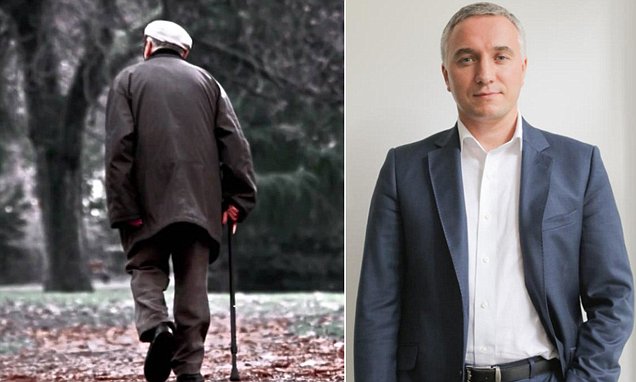HONG KONG (Web Desk) – A Russian multi-millionaire whose dream it is to live forever has promised to give $1 million to the first person to reach the age of 123.
Dmitry Kaminskiy, a senior partner of Hong Kong-based firm, Deep Knowledge Ventures, is hoping his million dollar gift will trigger a new group of ‘supercenternarians’.
He says research into stem cells, tissue rejuvenation and regenerative medicine will allow people to live beyond 120 – an age that has been quoted as the ‘real absolute limit to human lifespan’.
‘We live in the most exciting era of human development when technologies become exponential and transformative,’ Kaminskiy told DailyMail.com.
“They may not realise it, but some of the supercentenarians alive today may see the dawn of the next century if they live long enough for these transformative technologies to develop.
“I hope that my prize will help some of them desire longer lifespans and make their approaches to living longer a little more competitive.”
French born Jeanne Calment currently holds the record, having lived to age 122.5. She died in 1997.
Already, a number of supercentenarians are candidates to best Calment’s record.
The oldest verifiable supercentenarians living now are Jeralean Talley, at 115 years, and Susannah Mushatt Jones, also at 115 years. Both are Americans, and Talley is older by 44 days.
In the last few years, major anti-aging companies, such as Google’s Calico and J Craig Venture’s new San Diego-based genome sequencing start-up Human Longevity Inc, have launched.
Alongside this, Billionaires like Larry Ellison, Sergey Brin, Peter Thiel, Paul F Glenn, and Dmitry Itskov are also funding research into longevity science.
Itskov is the founder of the 2045 Initiative, with the goal of helping humans achieve physical immortality within the next three decades.
Reuters reported that gerontologist Dr Aubrey de Grey, chief scientist at SENS Research Foundation and Anti-Aging Adviser to the US Transhumanist Party, thinks scientists may be able to control aging in the near future.
“I’d say we have a 50/50 chance of bringing aging under what I’d call a decisive level of medical control within the next 25 years or so,” he said.
Kaminskiy is hopeful people will soon start living to 150 years of age with longevity science improving.
Studies in stopping and reversing aging in mice have already shown some success, and people around the world are generally living longer all the time.
For example, life expectancy hit an all time high of nearly 79 years-old in 2014 in America according to a report from Centers for Disease Control and Prevention’s National Center for Health Statistics.
Additionally, Britain’s oldest person, Ethel Lang, just died at the age of 114. She was believed to be the last person living in the UK who was born in the reign of Queen Victoria.
Whether Kaminskiy’s million dollar prize will encourage people to live longer is still to be seen.
But this isn’t the first time Kaminskiy has made news with in the longevity field using his resources.
At January’s JPMorgan Health Care Conference in San Francisco, he recently bet Dr Alex Zhavoronkov, PhD, CEO of anti-aging company Insilico Medicine Inc. for a million dollars in stock who would live beyond 100 years of age.
“Longevity competitions may be a great way to combat both psychological and biological aging,” Dr Zhavoronkov said.
“I hope that we will start a trend.”
Zhavorokov thinks longevity science today resembles the computer industry in the 70s or networking in mid-90s.
“Most of the pieces are there,” he said. “We just need a product or a service to transform the way we live. The revolution in longevity is just around the corner and it is time to seriously engage in the field.”
Historically speaking, prizes have made a difference in the way science and culture has evolved, and also in the way people look at the world.
The Nobel Prizes, given out in Stockholm, Sweden every year, are perhaps the most famous and coveted of all awards on the planet.
Scientists and peace activists’ careers can change overnight by winning the prestigious prize.
It’s possible the million dollar prize for the longest living person ever on the planet will also evolve into a well-known award.
Perhaps other wealthy enthusiasts will step forward to offer new longevity awards after a supercentenarian reaches age 123.
Maybe a trend will be set, and new awards for age 135, or even age 150 will be established.














